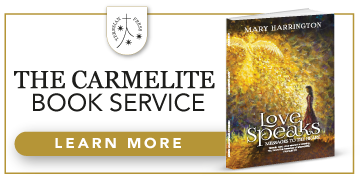Sorry, no records were found. Please adjust your search criteria and try again.
Sorry, unable to load the Maps API.
With all the financial turmoil and worry that has been consuming the country over the past few days, you’d be forgiven for thinking that we’re plunging into an economic crisis with no visible remedies.
Few politicians have wanted to be talking in terms of a UK Recession, never mind a full-blown Depression, but that’s increasingly where things seem to be heading. Even if the world had been a solidly stable place the latest announcements from our new government would have set nerves on edge across the global financial markets, but coming in the midst of the most fragile state of world peace of the past century, we’re seeing little short of outright fiscal panic.
In a world where uncertainties and risks seem to be multiplying by the minute, a rigidly steady hand was needed on the tiller; instead we got a government saying it was more than happy to ‘gamble’ all our futures on largely unproven and profoundly risky economic decisions.
Maybe I’m just getting old, but I can’t help feeling that however unsympathetic I might have been to their political views; Cabinet ministers of the past had a certain self-evident gravitas, knowledge and worldly experience. Even the most roguish and philosophically reprehensible among them might have been someone you’d have wanted in your lifeboat if the ship was sinking.
Sadly, many of today’s politicians seem more like the kind of dull people you met at those business conferences that you’ll never waste your time with again, or students who’ve somehow escaped the Sixth Form prematurely. When you hear the likes of Liz Truss and Kwasi Kwarteng referencing Margaret Thatcher, or Boris Johnson trying to draw parallels between himself and Winston Churchill, it only makes the point.
And what of His Majesty’s loyal opposition? Well, I presume it must be out there somewhere, but for me it certainly wasn’t in Liverpool this week. From the sight and sound of Labour’s 2022 National Conference attendees singing God Save the King – the first time they’ve has sung the national anthem since the early 1900s – to Kier Starmer frothing admiration for Tony Blair and talking about taking Labour to the centre ground (which presumably is a swing to the left!) I couldn’t help but feel I’d been watching just another bunch of Tories, but with red rosettes.
I normally shy away from ad hominem attacks and personal insults, but the present economic situation has moved beyond generalities, as it’s individuals in power of all hues who are currently making profound decisions that will have catastrophic consequences for other individuals far less fortunate than them, and for us all. So, yes, it’s personal.
To be honest, his has been a long time coming. Those of us old enough to remember previous downturns have been flagging up the warning signs, but the country seems to have been sleepwalking towards economic catastrophe. It is only in the past 48 hours that the majority are beginning to realise that they will be impacted directly and very harshly over the coming months, and probably years.
But there are alternatives, and it really need not be like this.
Last weekend Pope Francis was in Assisi, and his meeting there made very few paragraphs across the media. Those on social platforms might have heard a little more, as the hashtag #EoF2022 gained some decent traction over the weekend. EoF – or The Economy of Franceso – has its roots in a fairly lengthy letter that Pope Francis wrote on 1st May (Memorial of St Joseph the Worker) 2019 to “young economists and entrepreneurs worldwide.”
Following on from the ideas he’d outline in Laudato Si, Francis spoke of creating a global movement of young people interested in developing “a different kind of economy: one that brings life not death, one that is inclusive and not exclusive, humane and not dehumanising, one that cares for the environment and does not despoil it.
“Sadly, few have heard the appeal to acknowledge the gravity of the problems and, even more, to set in place a new economic model, the fruit of a culture of communion based on fraternity and equality,” he said.
The Pope called for an annual meeting to be held in Assisi, and named the event Economy of Francesco. Although this movement draws its inspiration from the historic life of St Francis of Assisi, the passion and vision of our own Francis runs deep through this initiative.
Way back in November 2013, in his exhortation Evangelii Gaudium, we first heard Pope Francis speak in what was then quite startling terms of an economy “that kills”.
“Today, everything comes under the laws of competition and the survival of the fittest, where the powerful feed upon the powerless,” he wrote.
“As a consequence, masses of people find themselves excluded and marginalised: without work, without possibilities, without any means of escape. Human beings are themselves considered consumer goods to be used and then discarded. We have created a ‘throw away’ culture which is now spreading… The excluded are not the ‘exploited’ but the outcast, the ‘leftovers’.”
Speaking in Assisi last Saturday on the final day of the Economy of Francesco meeting, Pope Francis said that the economy should be guided by “an ethics of the human person and open to transcendence” and must create “wealth for all,” spreading joy instead of only riches.
At the close of the meeting he undersigned a Covenant document declaring that young people recognise the “responsibility that rests on our generation” and they commit themselves to spending their lives so that “the economy of today and tomorrow becomes an economy of the Gospel”.
The final paragraph of the Covenant states that: “We believe in this economy. It is not a utopia, because we are already building it. And some of us, on particularly bright mornings, have already glimpsed the beginning of the promised land.”
This is no poetic epilogue, but rather a challenge to legislators and those in power that the next generation is bringing very different demands to the table. As their covenant says, the world needs “an economy guided by an ethics of the human person and open to transcendence … an economy that creates wealth for all, that engenders joy and not just riches, because happiness that is not shared is incomplete.
Words, of course, come easy, but we all know that actions are far harder. It’s easy to applaud the ideals of the Economy of Francesco movement but feel that the world may not embrace such ideals readily or easily. Those in power, those with personal wealth, will not give up their chattels easily.
But the world is changing, and rapidly. I actually draw great encouragement from the years of disenfranchisement young people have experienced from conventional, adversarial politics. On the downside it has crashed the voting numbers and has put minorities in power, it has handed mandates to those with no real mandate and it has allowed the most extraordinary falsehoods to become accepted currency. But we’re finally reaching a point where the voices of those in power no longer reflect the hopes and aspirations of those on the street, and no-one is able to predict the zeitgeist.
In this political vacuum you’ll hear fears expressed that extreme ideologies might gain ground, with this week’s victory of Giorgia Meloni in the Italian General Election being cited by many as an example of how uncertainty lets in the fascists. Maybe it does, but it’s also true that a country gets the government it deserves. Where that leaves us is anyone’s guess, but the Catholic theologian Tine Beattie rightly made the point this week that in the present economic crisis “we need a theology”. The fine example being set by young Catholic economists and entrepreneurs through the Economy of Francesco project ought to be a model for a serious realignment of political priorities here in the UK.
Maybe our young Catholics are already formulating ideas. I pray God they are as the need for an alternative, more humane economic strategy is becoming critically urgent.
Joseph Kelly is a Catholic writer and political theologian
































